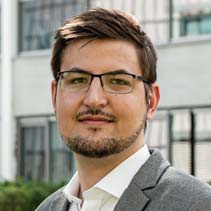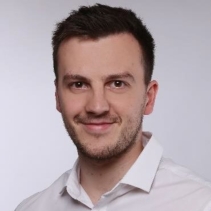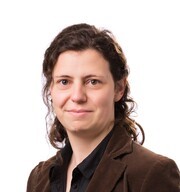Guest Seminar: Hydrogen Technologies – Research, Development and Testing at the Center of Energy Technology
Event description
IN PERSON EVENT ONLY
The Melbourne Energy Institute invites you to a seminar on Hydrogen Technologies – Research, Development and Testing at the Center of Energy Technology.
The Center of Energy Technology (ZET) is a research center at the University of Bayreuth, bundling the complementary energy technology competencies and activities of currently eight chairs of the Faculty of Engineering Science. In this presentation we will provide some insights into running R&D projects and cooperations in the field of hydrogen technologies:
- The research project "ZET Future Energy Lab Wunsiedel" is funded with 5 million EUR and scientifically supports the realisation of one of Germany's largest power-to-gas plants based on PEM technology at Wunsiedel, a small city near Bayreuth. The electrolysis plant is integrated into the existing municipal infrastructure and energy system on site. The objective is to develop efficient strategies for coupling the electricity sector with the heating, mobility and industry sectors. Therefore, a simulation model of the hydrogen production plant and the energy systems of the entire energy park is being implemented based on real operating data.
- The BMBF-funded German-Canadian Joint Project "HYER" has the overall objective to progress the state-of-the-art in PEM electrolysis operations by developing capabilities to monitor and manage performance degradation mechanisms for industrial stacks. The ZET is contributing the techno-economic simulation of electrolysis plants with focus on dynamic operation and prediction of degradation using AI models to this project.
- The ZET and its Australian partners from Swinburne University of Technology, the Siemens Swinburne Energy Transition Hub and the Victorian Hydrogen Hub (VH2), are developing and optimising hybrid hydrogen-battery energy systems for community microgrids within the scope of a Joint PhD project. Furthermore, the Joint UA/DAAD project “Modelling and optimisation of hydrogen refuelling infrastructure for heavy duty mobility” is focusing on the supply chain for hydrogen refuelling stations.
SPEAKERS:

Dr.-Ing. Matthias Welzl
Chair of Engineering Thermodynamics and Transport Processes (LTTT)
Center of Energy Technology (ZET)
University of Bayreuth, Germany
Matthias Welzl has more than nine years of experience in the energy sector, specialising in thermal engineering, energy system engineering and hydrogen technologies. He is a Senior Research Associate at the Center of Energy Technology (ZET), coordinates the hydrogen research and technologies at the University of Bayreuth and leads the hydrogen technologies research group. In this role, he has established collaborative national and international research projects, co-led and led research projects and taught in Bachelor‘s and Master‘s programmes. Matthias’ current research focuses on the experimental investigation of boiling heat transfer, techno-economic optimisation of coupled energy systems, and development of digital twins. Previously, he was a research associate at the University of Bayreuth, where he graduated with a Doctorate (Dr.-Ing.) in Engineering Science.

Mr. Tim Herrmannsdörfer
Research Associate at the Chair of Engineering Thermodynamics and Transport Processes
Center of Energy Technology (ZET)
University of Bayreuth, Germany
Tim Herrmannsdörfer has been a research associate at the Center of Energy Technology (ZET) since 2021. He is part of the hydrogen technologies research group and has extensive expertise in the modelling and simulation of energy systems with a focus on electrolysis plants from his work in the “ZET Future Energy Lab Wunsiedel” research project. His research focuses on the techno-economic optimisation of power-to-gas plants. Before joining the ZET, he completed his Master’s degree in Energy Technology at the University of Bayreuth.
MODERATOR:

Dr. Eirini Goudeli
Senior Lecturer, Department of Chemical Engineering
Assistant Dean International, Faculty of Engineering and Information Technology
University of Melbourne
Dr. Goudeli's research focuses on synthesis of nanoparticles by gas-phase methods and multiscale modeling of particle formation and growth by interfacing molecular dynamics simulations, mesoscale models and population balance equations. Gas-phase methods, such as flame spray pyrolysis, are used routinely for commercial synthesis of nanostructured particles (e.g. fumed silica, pigmentary titania, carbon black, Ni) as well as for advanced materials (e.g. photocatalysts, nanofluids and biomaterials). This systematic approach to study particle formation can offer significant insight into fundamental physical principles and mechanisms that may be exploited by chemical industry and nanotechnology.
Tickets for good, not greed Humanitix dedicates 100% of profits from booking fees to charity


